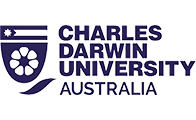Lyriotakis Theodoros

PhD Candidate in Linguistics, University of Crete
Language biographies in the service of understanding phonological variation in dialectal heritage Modern Greek: a first approach.
Abstract
This study highlights the importance of language biographies, i.e., the set of every linguistic experience and the subsequent input which shapes a person’s linguistic repertoire (Cuq 2003; Baroni & Bemporad 2011, i.a.), in exploring seemingly unexpected phonological realizations in heritage Modern Greek speech. Specifically, we consider language biographies as a major factor in understanding a heritage speaker’s phonological system, especially when fieldwork recordings reveal unexpected –considering the input– realizations. To present our reasoning we investigate the influence of the sociolinguistic environment, as emerged from the narratives of two female dialectal heritage Modern Greek speakers, born and raised in Toronto, Canada, on their realizations of word-medial voiceless stops (/p, t, k/) preceding /a, o, u/ in unstressed (case I) / stressed (case II) syllables.
Case I (female, aged 45, of Western Cretan heritage): This speaker realizes the three voiceless stops as geminates (e.g., 1). However, her bilingual input would not favor the emergence of geminates, the latter being unattested in both Western Cretan Greek and English. Her language biography revealed that she has spent most of her adult life working alongside Italian heritage speakers. This suggests that the contact with Italian, which possesses geminates, and the subsequent transfers (see Gass & Selinker 1992) led to heritage Western Cretan Greek attrition (cf., Montrul & Polinsky 2021) and adult acquisition of these Italian-like realizations.
(1) [ˈsa.kːos] ‘sack’N.MASC.NOM.SG vs. (Homeland Western Cretan Greek) [ˈsa.kos]
Case II (female, aged 43, of Southeastern Laconian heritage): This speaker was raised in a family where the heritage linguistic variety was cherished and widely spoken. However, according to her narrative, when she reached the age of schooling, her parents were told by teachers to abandon the homeland-language-friendly policy and to switch exclusively to English. This led to a progressive attrition, favoring phonological transfers from the progressively dominant English to the phonological outputs in the homeland variety. In her speech, aspiration of voiceless stops (e.g., 2) was the most distinct characteristic.
(2) [ka.ˈtho.i] ‘cellar’Ν.NEU.NOM.SG vs. (Homeland Southeastern Laconian Greek) [ka.ˈto.i]
Although a new Greek Canadian Koiné is under development among first-generation immigrants (Pappas, Ralli & Tsolakidis 2022), this does not seem to apply to the phonological system of the second generation. Various social and educational factors lead to extended phonological variation, which should be analyzed alongside the sociolinguistic background as depicted in language biographies.
Key-words: phonological variation, language biographies, dialectal heritage Modern Greek, Canada, language contact
Biography
Theodoros Lyriotakis studied Linguistics at the Aristotle University of Thessaloniki, the University Sorbonne Nouvelle and the University of the Aegean and, currently, he is a PhD Candidate in Linguistics at the University of Crete. His research interests focus on phonology, laboratory phonetics, sociolinguistics, dialectology and heritage languages. We holds a contract position as a Research Fellow in Linguistics at the University of Crete and he works as a Research Assistant at the Ministry of Education, Religious Affairs and Sports. He has published articles in peer-reviewed volumes and proceedings and has presented his work at international conferences.


